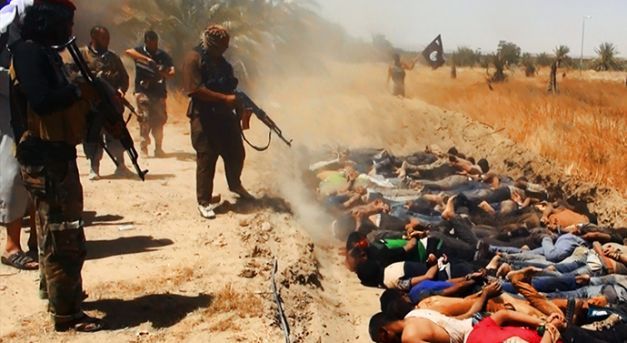US historian Webster Tarpley says that the United States created the Islamic State and uses jihadists as its secret army to destabilize the Middle East.
The Islamic State is a secret army of the United States and Abu Bakr al-Baghdadi, a leader of the terrorist group, is a close friend of US Senator John McCain, says US historian Webster Tarpley, according to Iranian News Agency IRNA.
The author, known for his book “9/11 Synthetic Terror: Made in USA”, said that all terrorism around the world is created and facilitated by the US government.
These are not Tarpley’s first comments in which he blames the United States for creating the Islamic State. Earlier, Press TV had an interview with Tarpley during which he explained his rationale why he thinks the United States was behind the creation of the terrorist group.
Tarpley began by saying that the money that supports the Islamic State and its operations comes from Saudi Arabia, a key US ally in the Middle East. The main money donor of the Islamic State is allegedly Prince Abdul Rahman al-Faisal, the brother of Saud bin Faisal Al Saud, Saudi Arabia’s Foreign Minister, and Prince Turki bin Faisal Al Saud, the former Saudi Ambassador to the United States.
Having said that, Tarpley concludes that if the United States really wanted to get rid of the Islamic State, it would have easily issued an ultimatum to Saudi Arabia and told the Gulf Kingdom to stop sending arms and money to the terrorists in Iraq and Syria.
Second, Turkey, a NATO member with a huge army, is right next to the war-town Syria and Iraq, where the jihadists operate. Tarpley asks the important question: why cannot the Turkish Army come into the lawless Syrian and Iraqi territory and simply wipe the jihadists off the face of the Earth in a matter of weeks, especially if the United States and NATO were so keen to destroy the Islamic State?
If the United States actually thought that the Islamic State was a monstrosity that must be destroyed at all cost, Tarpley asks why wouldn’t the White House join the government of Bashar Assad in Syria, the legally recognized government and the UN member state, in the fight against the jihadists and crush them once and for all? And also, why did the US troops bomb Syrian units loyal to Assad, once the Syrian army started to defeat the jihadists and push them away? Counterproductive and senseless at best, the secret supporter of the militants at worst, Tarpley says.
And lastly, referring to how the jihadist group is using social media and Internet to spread its propaganda and recruit new fighters, Tarpley said there is an interest in not having the Islamic State propaganda shut down online. All major Internet companies are based in the United States and therefore the White House could easily limit, if not close down, the presence of Islamic State on the Internet, if it wanted to.
Although Tarpley’s line of thinking might seem a little too provocative to some, the questions that he asks are nonetheless important. There is certainly a connection between the emergence of al-Qaeda and the American involvement in Afghanistan back in the 1980s. And since al-Qaeda was a forefather of the Islamic State, there might be a possibility of a more intimate relationship between the government of the United States and the jihadists, currently cutting people’s heads off in Iraq and Syria.
Sputniknews

